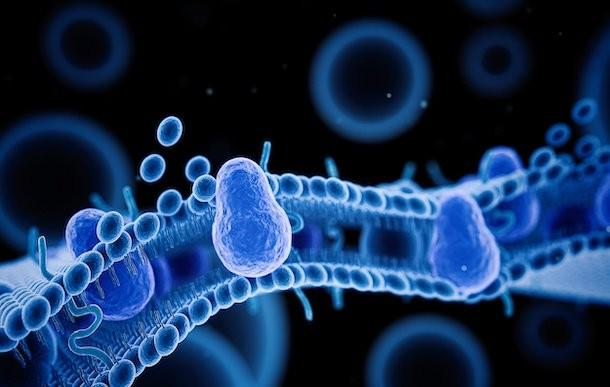
Membrane Structure & Function II (The Living Cell)
Learning objectives Describe the relationship between structure and function Understand the difference between active and passive transport Understand the importance of cellular compartmentation Describe the importance of membrane proteins in cell-cell recognition
-
Picture outlining the different organelle membranes and their functions:
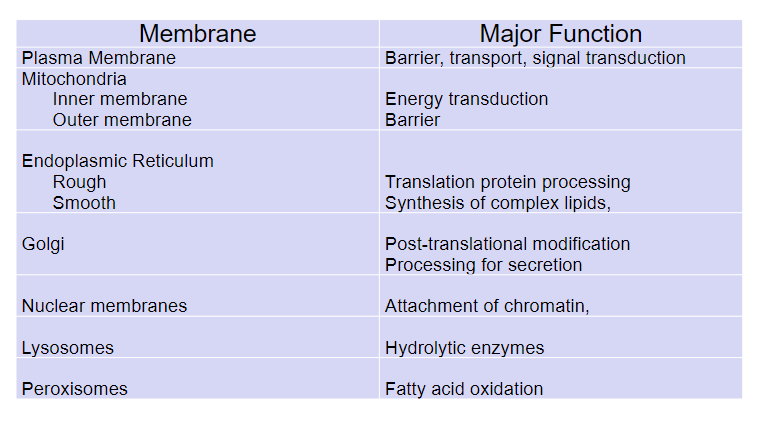
-
Picture outlining some different membranes and chemical compositions: (protein, lipid and carbohydrates)
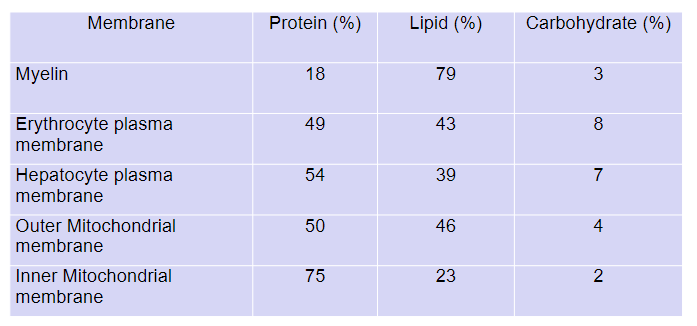
-
What is simple diffusion?
Simple Diffusion:
-Occurs from an area of higher concentration to an area of lower concentration.
-No energy input required.
-Directly through the lipid bilayer or through protein channels.
-Small, nonpolar molecules move freely via simple diffusion.
-
Membrane transport can be P vs A and N vs C; what is P, A, N and C?
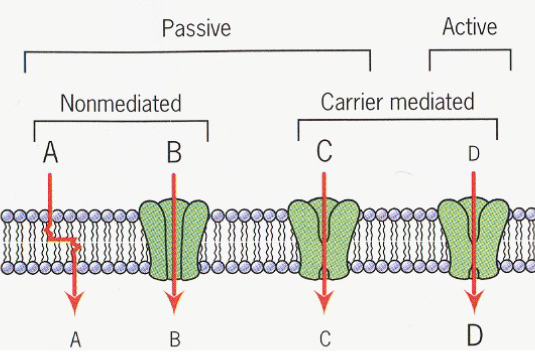
-Passive vs Active
-Non-mediated vs Carrier mediated
-
What is a Symporter and what is an Antiporter? Name some examples for each.
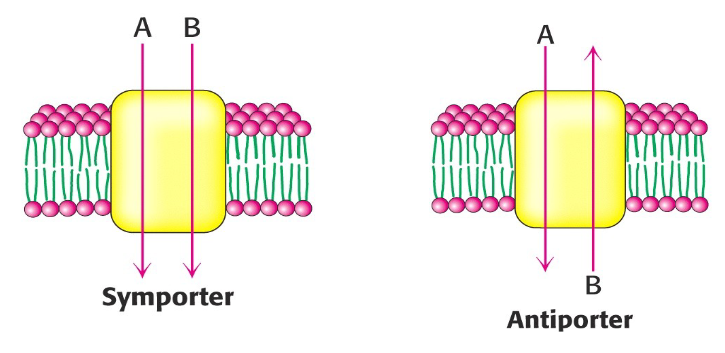
Symporter:
Definition:
Membrane protein facilitating the simultaneous transport of two different molecules in the same direction.
Example:
Glucose-sodium symporter in intestinal cells.
Antiporter:
Definition:
Membrane protein facilitating the simultaneous transport of two different molecules in opposite directions
Example:
Sodium-potassium pump, exchanging sodium ions for potassium ions across the cell membrane.
-
Picture outlining Carrier mediated facilitative diffusion vs simple diffusion:
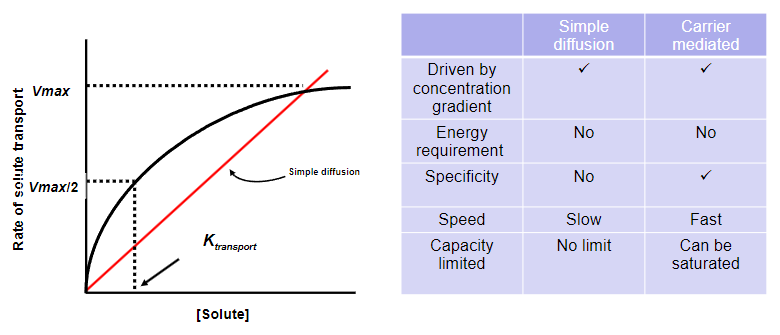
-
What is Kt?
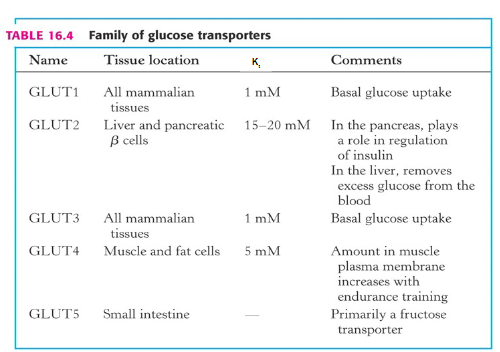
Kt- A measure of affinity for the transporter and the molecule it transports (Amount when the transporters will be fully active)
-
GLUT4 transporters are increased on muscle and adipocytes by what molecule?
Insulin
-
What is the circulating concentration of glucose ion the blood at resting and after a meal?
-Resting 4mM
-After a meal, 10-15mM
-
What is active transport?
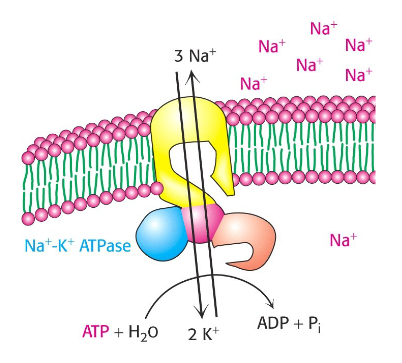
Definition: Movement of molecules across a cell membrane against their concentration gradient.
Energy Requirement: Requires energy input, often from ATP.
-
What are some sodium dependent glucose transporters?
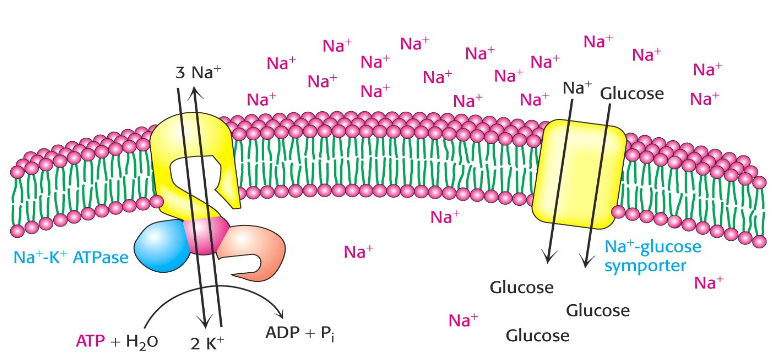
SGLUT-1 and 2
-
Asymmetry of proteins is maintained by what?
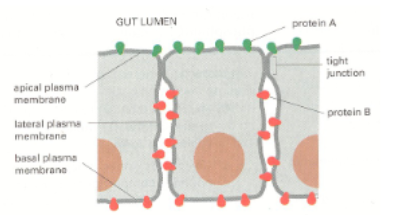
-Tight junctions
-
What is the point of rehydration therapy? And what are some methods?
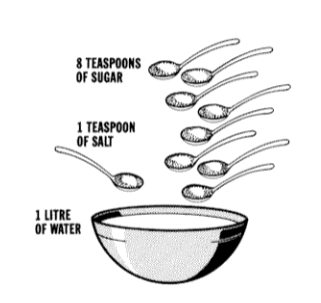
Rehydration Therapy:
Objective: To restore lost fluids and electrolytes in individuals experiencing dehydration by targeting the co-transport of glucose and sodium
Methods: Involves oral or intravenous administration of fluids containing water, salts, and sometimes glucose.
-
What is compartmentalization in the context of membranes (1) and why is it useful? (2)
-When Intracellular membranes create local environments and separate reactions
• Enables electrochemical gradients to be established
• Brings enzymes and reactants together and/or keep them apart
-
What are lysosomes?
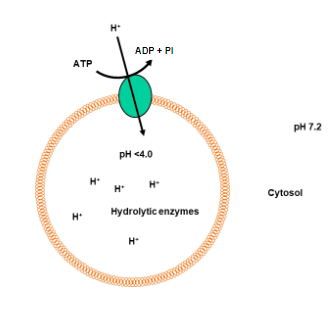
Definition: Membrane-bound organelles containing digestive enzymes.
Function:
Break down cellular waste, old organelles, and foreign particles.
Participate in autophagy, the process of degrading and recycling cellular components.
Enzymes: Include acid hydrolases for hydrolytic reactions.
Acidic Environment: Maintained to optimize enzyme activity.
-
What are peroxisomes?
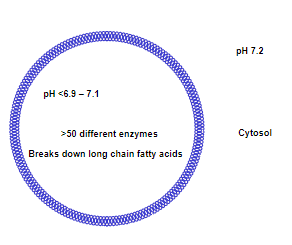
Definition: Single-membrane organelles containing enzymes involved in various metabolic processes.
Structure:
-Have a crystalloid core
-Have a pH of between 6.9 and 7.1
Function:
-Break down fatty acids through beta-oxidation.
-Participate in detoxification reactions.
-Contribute to the synthesis of certain lipids.
Enzymes:
-Include catalase for detoxifying hydrogen peroxide.
Self-Replication:
-Can self-replicate by division.
-
Picture outlining how hydrolytic enzymes are added to the lysosome:
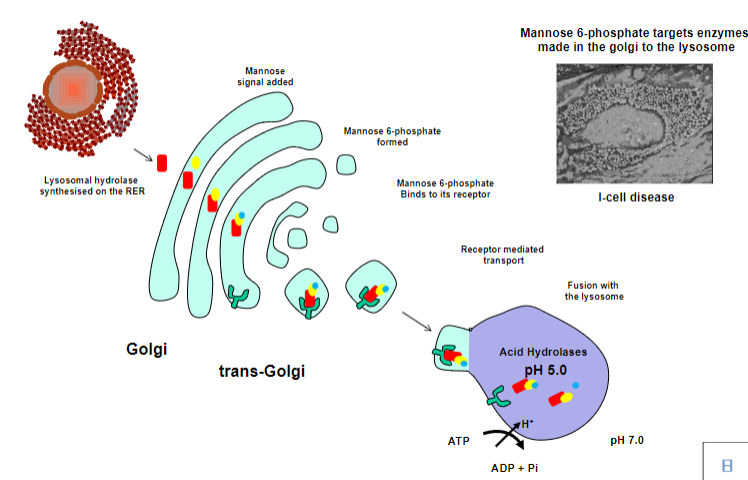
-
What does GLUT 1 associate with? (corresponding tissue locations, Kt's and additional comments)
-All mammalian tissues
-1 mM
-Basal glucose uptake
-
What does GLUT 2 associate with? (corresponding tissue locations, Kt's and additional comments)
-Liver and pancreatic b cells
-15-20 mM
-In the pancreas, plays a role in regulation of insulin
-In the liver, removes excess glucose from the blood
-
What does GLUT 3 associate with? (corresponding tissue locations, Kt's and additional comments)
-All mammalian tissues
-1 mM
-Basal glucose uptake
-
What does GLUT 4 associate with? (corresponding tissue locations, Kt's and additional comments)
-Muscle and fat cells
-5mM
-Amount in muscle plasma membrane increases with endurance training
-
What does GLUT 5 associate with? (corresponding tissue locations, Kt's and additional comments)
-Small intestine
-unknown kt
-Primarily a fructose transporter

